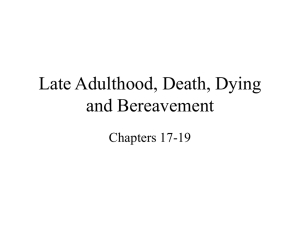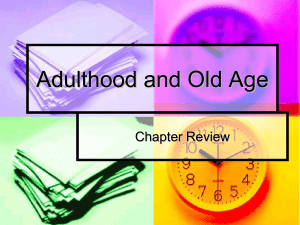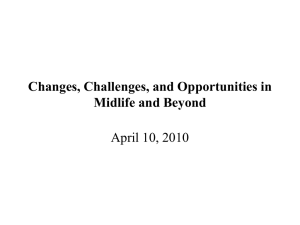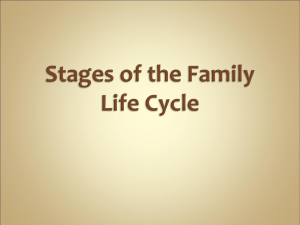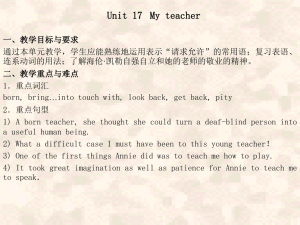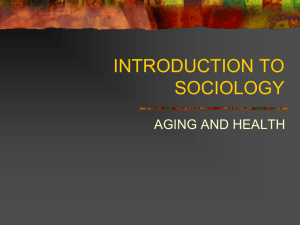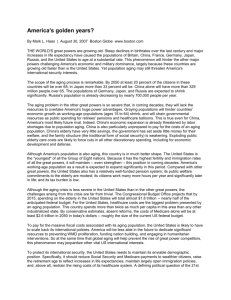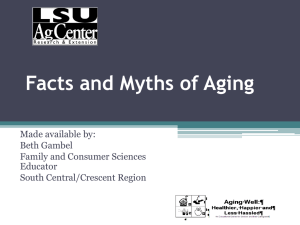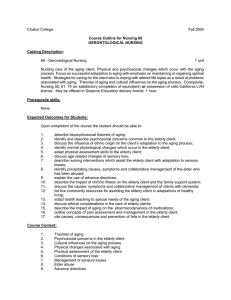Chapter 5 Review
advertisement
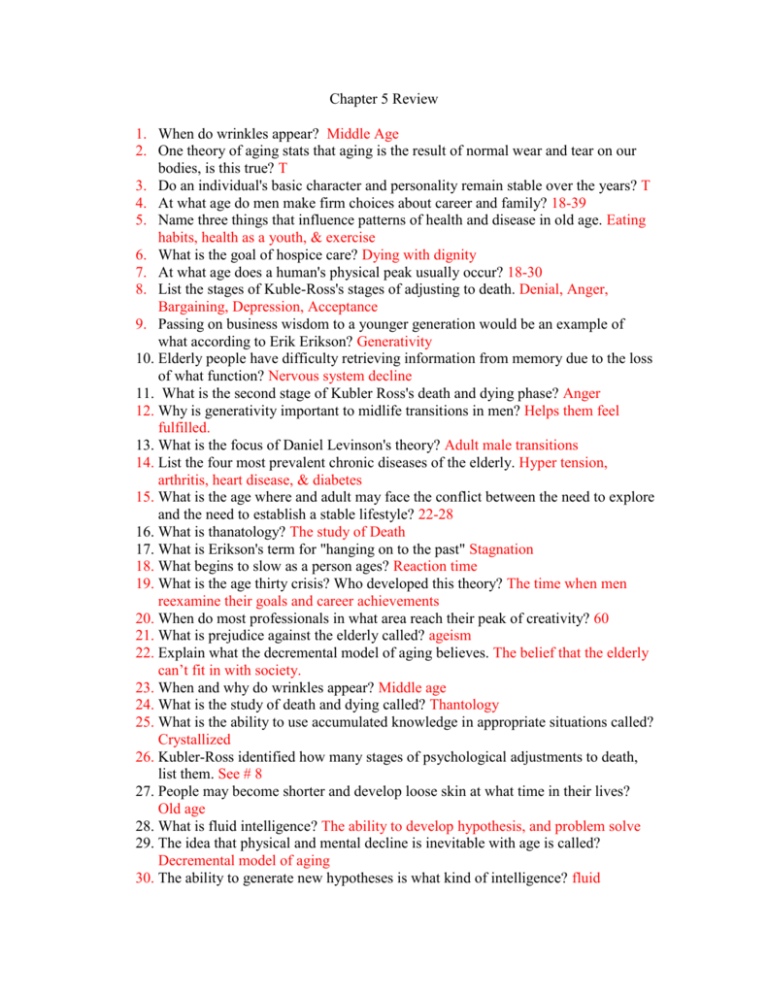
Chapter 5 Review 1. When do wrinkles appear? Middle Age 2. One theory of aging stats that aging is the result of normal wear and tear on our bodies, is this true? T 3. Do an individual's basic character and personality remain stable over the years? T 4. At what age do men make firm choices about career and family? 18-39 5. Name three things that influence patterns of health and disease in old age. Eating habits, health as a youth, & exercise 6. What is the goal of hospice care? Dying with dignity 7. At what age does a human's physical peak usually occur? 18-30 8. List the stages of Kuble-Ross's stages of adjusting to death. Denial, Anger, Bargaining, Depression, Acceptance 9. Passing on business wisdom to a younger generation would be an example of what according to Erik Erikson? Generativity 10. Elderly people have difficulty retrieving information from memory due to the loss of what function? Nervous system decline 11. What is the second stage of Kubler Ross's death and dying phase? Anger 12. Why is generativity important to midlife transitions in men? Helps them feel fulfilled. 13. What is the focus of Daniel Levinson's theory? Adult male transitions 14. List the four most prevalent chronic diseases of the elderly. Hyper tension, arthritis, heart disease, & diabetes 15. What is the age where and adult may face the conflict between the need to explore and the need to establish a stable lifestyle? 22-28 16. What is thanatology? The study of Death 17. What is Erikson's term for "hanging on to the past" Stagnation 18. What begins to slow as a person ages? Reaction time 19. What is the age thirty crisis? Who developed this theory? The time when men reexamine their goals and career achievements 20. When do most professionals in what area reach their peak of creativity? 60 21. What is prejudice against the elderly called? ageism 22. Explain what the decremental model of aging believes. The belief that the elderly can’t fit in with society. 23. When and why do wrinkles appear? Middle age 24. What is the study of death and dying called? Thantology 25. What is the ability to use accumulated knowledge in appropriate situations called? Crystallized 26. Kubler-Ross identified how many stages of psychological adjustments to death, list them. See # 8 27. People may become shorter and develop loose skin at what time in their lives? Old age 28. What is fluid intelligence? The ability to develop hypothesis, and problem solve 29. The idea that physical and mental decline is inevitable with age is called? Decremental model of aging 30. The ability to generate new hypotheses is what kind of intelligence? fluid 31. This is the biological event in which women's production of sex hormones drops. menopause 32. This is a facility designed for the special needs of the dying. Hospice 33. What changes in a women's life may result in midlife, and how can those changes lead to depression? Divorce, children moving out, feelings of not being needed. 34. What are the two types of intelligence proposed by John Horn, and how do they differ? Crystallized and fluid, crystallized is the accumulated knowledge and the knowledge to know when to use it and fluid is the ability to problem-solve and hypothesize.
